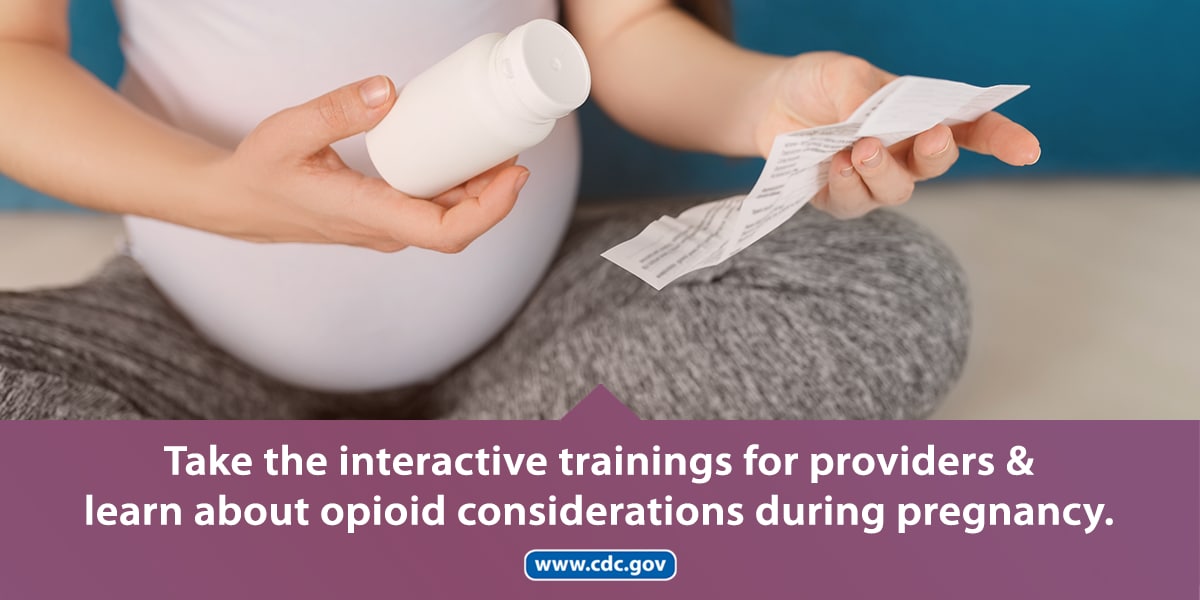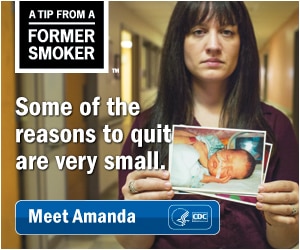Substance Use During Pregnancy
Learn about substance use during pregnancy and CDC activities to address this important health topic.
Opioids
Opioids are a class of drugs used to manage pain, but also have serious risks, such as addiction. Opioids can be prescription or illicit. Prescription opioids may be prescribed by doctors to manage moderate to severe pain. Heroin is an illicit opioid. Fentanyl is a prescription opioid that can be used to treat severe pain. However, fentanyl has also been manufactured illicitly, and its distribution is on the rise. Opioid use disorder is a problematic pattern of opioid use that can result in health problems, disability, or failure to meet major responsibilities at work, school or home. Along with counseling and behavioral therapy, opioid medications (buprenorphine, methadone, and naltrexone) may be used in medication assisted therapy (MAT) to treat opioid use disorder.
Opioid use disorder among pregnant women is a significant public health concern in the United States. The number of pregnant women with opioid use disorder at labor and delivery more than quadrupled from 1999 to 2014, according to a recent CDC analysis. Opioid use disorder during pregnancy has been linked with serious negative health outcomes for pregnant women and developing babies, including preterm birth, stillbirth, maternal mortality, and neonatal abstinence syndrome (NAS). NAS is a group of withdrawal symptoms that most commonly occurs in newborns after exposure to opioids during pregnancy.If you are pregnant and using opioid pain medications, CDC recommends you talk to your provider before starting or stopping any medications to help you understand all of the risks and make the safest choice for you and your pregnancy. To learn more about medication-assisted treatment for opioid use disorder and considerations in pregnancy, visit https://www.samhsa.gov/medication-assisted-treatment.
If you or someone close to you needs help for a substance use disorder, talk to your healthcare provider or call SAMHSA’s National Helpline at 1-800-662-HELP. You can also go to SAMHSA’s Behavioral Health Treatment Services Locator.
CDC Activities to Address Opioid Use During Pregnancy
As part of CDC’s efforts to prevent overdoses and substance use-related harms, CDC is taking specific actions to prevent opioid use disorder among pregnant women and women who could become pregnant and to make sure women with opioid use disorder get proper treatment.
Marijuana
Some research shows that marijuana use during pregnancy is linked to health concerns, including high use of other substances that may impact pregnancy and infant health such as tobacco, and developmental problems in adolescents. Further research is needed to better understand how marijuana may affect pregnant women and developing babies. Consistent with guidance from the American College of Obstetricians and Gynecologists, CDC advises against using marijuana during pregnancy. If you’re using marijuana and are pregnant or are planning to become pregnant, talk to your healthcare provider.
For more information, see What You Need to Know About Marijuana Use and Pregnancy and The Health Effects of Cannabis and Cannabinoids: The Current State of Evidence and Recommendations for Research (2017).
CDC Activities to Address Marijuana Use During Pregnancy
CDC’s Division of Reproductive Health (DRH) provides scientific leadership in the surveillance of marijuana use during pregnancy. DRH presents state and national estimates of marijuana use among pregnant women. This helps clinicians better understand the prevalence of marijuana use as they care for their pregnant patients and provide screening and treatment. CDC also works to better understand the association between marijuana use while pregnant with birth outcomes and postpartum experiences, such as depression and breastfeeding. To view abstracts of recent publications in PubMed, see Prevalence and patterns of marijuana use among pregnant and nonpregnant women of reproductive age and Marijuana use during and after pregnancy and association of prenatal use on birth outcomes: A population-based study.
Tobacco
Smoking during pregnancy increases the risk of health problems for developing babies, including preterm birth, low birth weight, and birth defects of the mouth and lip. Smoking during and after pregnancy also increases the risk of sudden infant death syndrome (SIDS).
Additionally, e-cigarettes and other tobacco products containing nicotine (the addictive drug found in tobacco) are not safe to use during pregnancy. Nicotine is a health danger for pregnant women and developing babies and can damage a developing baby’s brain and lungs. Also, some of the flavorings used in e-cigarettes may be harmful to a developing baby. Learn more about e-cigarettes and pregnancy.
Quitting tobacco can be hard, but it is possible. Quitting smoking is one of the most important ways you can protect your health and the health of your baby. Quitting early or before pregnancy is best, but it’s never too late to quit smoking. Your doctor can play an important role in helping you quit, including giving advice and support with quitting and connecting you with other resources. You can also call 1-800-QUIT-NOW (1-800-784-8669) for free support. Quitline coaches can answer questions, help you develop a quit plan, and provide support. For tips and advice to quit smoking, you can also visit How to Quit and Pregnancy, Motherhood, and Smoking.
To learn about CDC activities to educate the public about the harms of tobacco use, visit Tips From Former Smokers® (Tips®) from the Office on Smoking and Health. The Tips® campaign features information about how smoking and secondhand smoking affect specific groups, including pregnant women or women planning to have a baby.
Related Links
- Maternal and Child Health Indicators provides the latest Pregnancy Risk Assessment Monitoring data on cigarette smoking before, during, and after pregnancy overall and by state
- Smoking, Pregnancy, and Babies from the Office on Smoking and Health
- Electronic Cigarettes from the Office on Smoking and Health
- For providers: ACOG Committee Opinion: Smoking Cessation During Pregnancy
Alcohol
There is no known safe amount of alcohol use during pregnancy or while trying to get pregnant. There is also no safe time during pregnancy to drink. All types of alcohol are equally harmful, including all wines and beer. If a woman is drinking alcohol during pregnancy, it is never too late to stop. If you are pregnant or trying to get pregnant and cannot stop drinking, get help. Contact your healthcare provider, local Alcoholics Anonymous, or local alcohol treatment center. Learn more at Alcohol Use in Pregnancy from the Division of Birth Defects and Infant Disorders. To learn about CDC activities to prevent fetal alcohol spectrum disorders, visit About Us from the National Center on Birth Defects and Developmental Disabilities.

